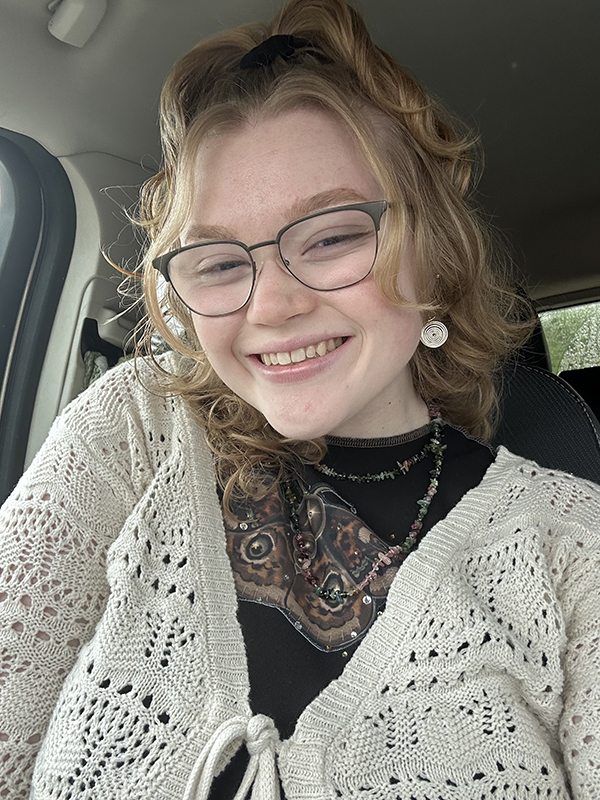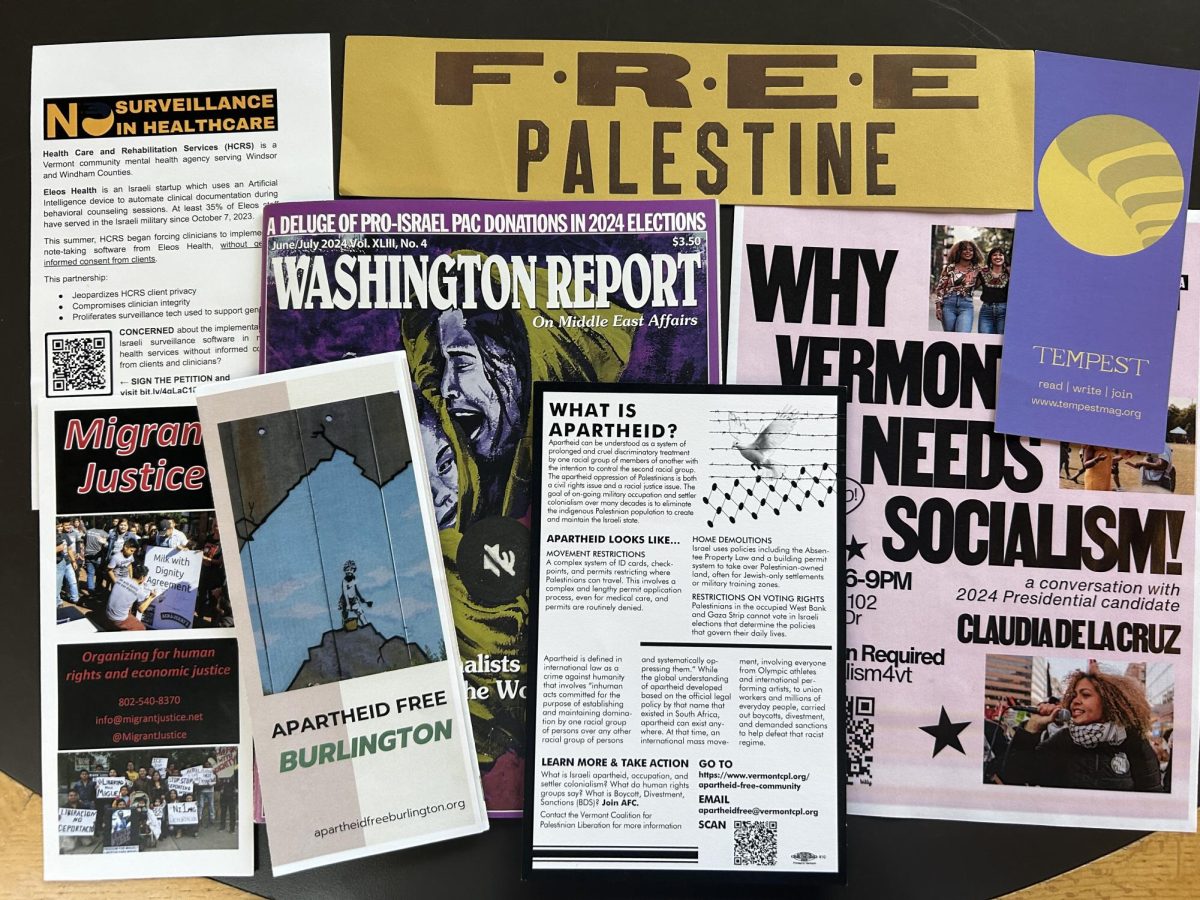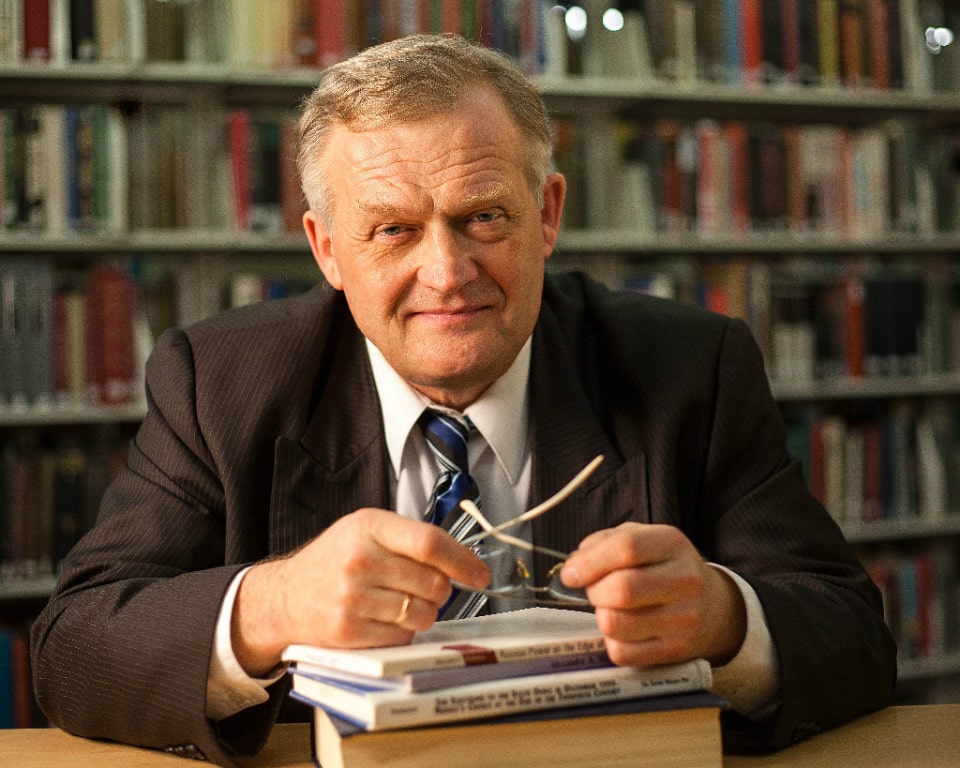Gabriel Fried is a poet and an editor. He is the author of “Making the New Lamb Take.” He is the poetry editor at Persea Books, an independently owned company located in New York City, NY. Fried is on tour promoting his new book of poems, “The Children are Reading.”
Fried visited Johnson State College on Thursday, March 29.
Q: I was curious as to how being an editor influenced your own writing. I work for the Green Mountains Review and I tend to find manuscripts that resonate with my own work. Have you discovered anything about your writing?
A:I think there are different types of discovery. I think you discover when you work as an editor; you discover how you like to be treated as a writer, and vice versa. I’ve learned a lot about what my hopes are for myself as a writer from how I go about editing.
Q: How do you feel about the direction of American writing?
A: There is, in American poetry, a tremendous sense of romanticism. Some of the dystopic writing is so incredibly lyrical, that in a way it becomes a kind of omen or foreshadowing of dystopia, but also a shadowing at the same time when someone is making something so beautiful out something so ominous. I think that there is so much going on, with so much earnestness and irony that it’s hard to scrutinize.
Q: When crafting a poem, do you try and work with some pre-conceived themes or ideas or do you simply allow your creativity to do the work?
A: Well, I think both. It depends where in a project I am. I think earlier on there is a natural coherence, but I don’t make myself write to the same themes, although I am drawn to them. As writers we all have our own modes and obsessions, our tastes, so certainly I find myself returning to the same things.
Q: Do you have any habits in your writing that you tend to fall back on?
A: One element of poetry is how it sounds in the air, you know, out loud. I find that those things for me tend to be sonic, or they tend to have to do with the cadence of the sentence, certain rhythms that I return to. Like a car trying to get itself out a rut, you go back and forth, back and forth and try and generate enough momentum to propel itself forward.
Q: How do you feel religion informs your work?
A: I think it is truer with the newer poems. I think it was certainly true with “Making the New Lamb Take,” but in the new collection called “The Children are Reading” there is this space that exists for religious fundamentalism and secularism. So by now, being from the north east, I’m so used to people rolling their eyes at religion, but on the other hand, having moved to the Midwest, I also see a more evangelical America than I was used to growing up.I connect religion and nostalgia in their impulses. The poems express ways to carve out a place for the spirit. It’s the place where I feel most spiritual.
Q: Yankees or Red Sox?
A: I’m a sad, sad Mets fan.
Q: Can you describe the fundamental difference between poetry and fiction, without taking into consideration form?
A: It’s hard to talk about poetry without taking about form. It’s so manifest in poetry. I feel some fiction feels far from fiction and some poetry feels far from poetry. But I think at the middle there is some common ground. I think that in poetry there is a relationship to the sentence that needs to be self sustain, and that each sentence is its own entity. In a way that is not always true in prose.
Q: How long does it take you to finish a project, meaning poem or book of poems?
A: I’m not someone at this stage who makes any effort to write every day. I write certain times during the year. And because the premium on poetry is not on volume, it’s not about how much time you’re sitting in front of the keyboard or writing with a pen. It can become a little amorphous trying to keep track of what the life of a poem is. I often like to sit with the idea of for a while before I attempt to ruin that idea by writing it. But there is some protectiveness around an idea that I’m going to write about, and that can sometimes last a day or a week.
Q: As a young poet, people have a lot of advice for me and a lot of the advice is to write every day. What advice have you gotten from other poets that have helped you and who has influenced your work?
A: Several poets that I have worked with I’ve become very close with, and in that there is certain reciprocity. And there are certain teachers who have helped me. I hesitate to say that anyone has informed that way I set about writing because I feel like it is highly personal and also circumstantial. You have to find ways to find space for your writing life that works for you, and that also doesn’t drive you crazy. Just because you have the hours in the day to do something doesn’t mean you have the mind set to get it done. It’s important to make it feel like special time. When I’m walking and thinking I still consider that work.
Q: What influenced you to write “Summer Stock”?
A: Well, I think a variety of things. I have young kids, and though I don’t write poems that are anecdotal about life, having kids has reinforced my idea about how kids look at things and how adults think about their own childhood. A poem like “Summer Stock,” which shows kids showing their versions of adulthood but also under an adult’s lens, because the speaker of this poem is witnessing the kid’s play. It’s a characteristic poem at this point in that I am interested in how children see adults and how adults see children.
Q: Could you explain the religious undertone in “Summer Stock”?
A: I think we seek communion, but we don’t find satisfaction in the larger population from a spiritual standpoint, and so that’s perhaps a poem that is a playful poem that has a tongue and cheek quality.
Q: What do you hope that people get out of your work?
A: Hmm, that’s a hard question. A sense of connectedness, a sense of shared stories. You know, one quality of the poems is that they are local and mythological at the same time. And so I think if people come away from the poems with connections to those landscapes and those circumstances in their own lives that the poems are in some way reminiscent of their own mythology and hometown narratives. I don’t know if that’s the only thing that I’d hope for.
Q: Was the response to “Making a New Lamb Take” what you hoped it would be?
A: It’s so hard to know that. There were lots of nice responses. When people like your work they don’t always like it for the reasons why you liked your own work. It’s hard to know what to do with that sometimes. Generally, yes. But I think it’s complicated. There certainly have been many, many gratifying moments. It’s a way in which it’s much easier to interact with authors than it ever used to be. In writing a book of poems a lot of people felt inclined to write letters, and I appreciated the effort of having written something out and mailing it.
Q: Was there anything else that surprised you about the publishing process?
A: I was less surprised than other people because I was so familiar with producing books. And I also knew that there was an element to having a book published that can feel a little lost in a way. It’s not like the book is accepted for publication and comes out immediately. There’s often a year or two between when you find that a book is going to be published and when it’s actually going to come out. And so by the time it comes out you’ve moved on to writing new things, and the book is an artifact in new ways.
Q: What are some of the things you did to have your book noticed?
A: There is a tremendous amount of talking up a book.There is that awkwardness of trying to promote your book without seeming like a self-promoter. It is a big paradox. All I can say is that there are good ways to go about it and bad ways to go about it. When you say I’m a writer, let alone I’m a poet, sometimes people are a bit snarky about that. You have to have answers for people who are really interested, and some for those who are not very interested. You have to have answers for those are interested, but don’t really have a vocabulary for talking about either poetry or literary writing.
Q: Do you thing people are afraid of poetry because it’s more personal?
A: There is the impression that it is more personal, and that can make people uncomfortable, but I actually don’t think that is true about good poetry; that it is more personal. Poetry is interesting in that unlike fiction people assume that the speaker of the poem is the author, and that’s not always the case. Some of the scenes that seem most confessional in my poetry are made up. The landscapes are consistent, and so that creates a sense of autobiography, but really it only gestures at autobiography. Sometimes there are these impressions that poetry is off limits, some how.
Q: Why did you decide to become a poet?
A: I had really good teacher as an undergraduate. I came from a big reading household. Because I was the oldest, I was read to at night until I was fifteen years old. The reading that I had started while I was young continued and we read really big fiction like Tolkien.. I certainly came from a family that took a tremendous amount of pleasure in reading.






